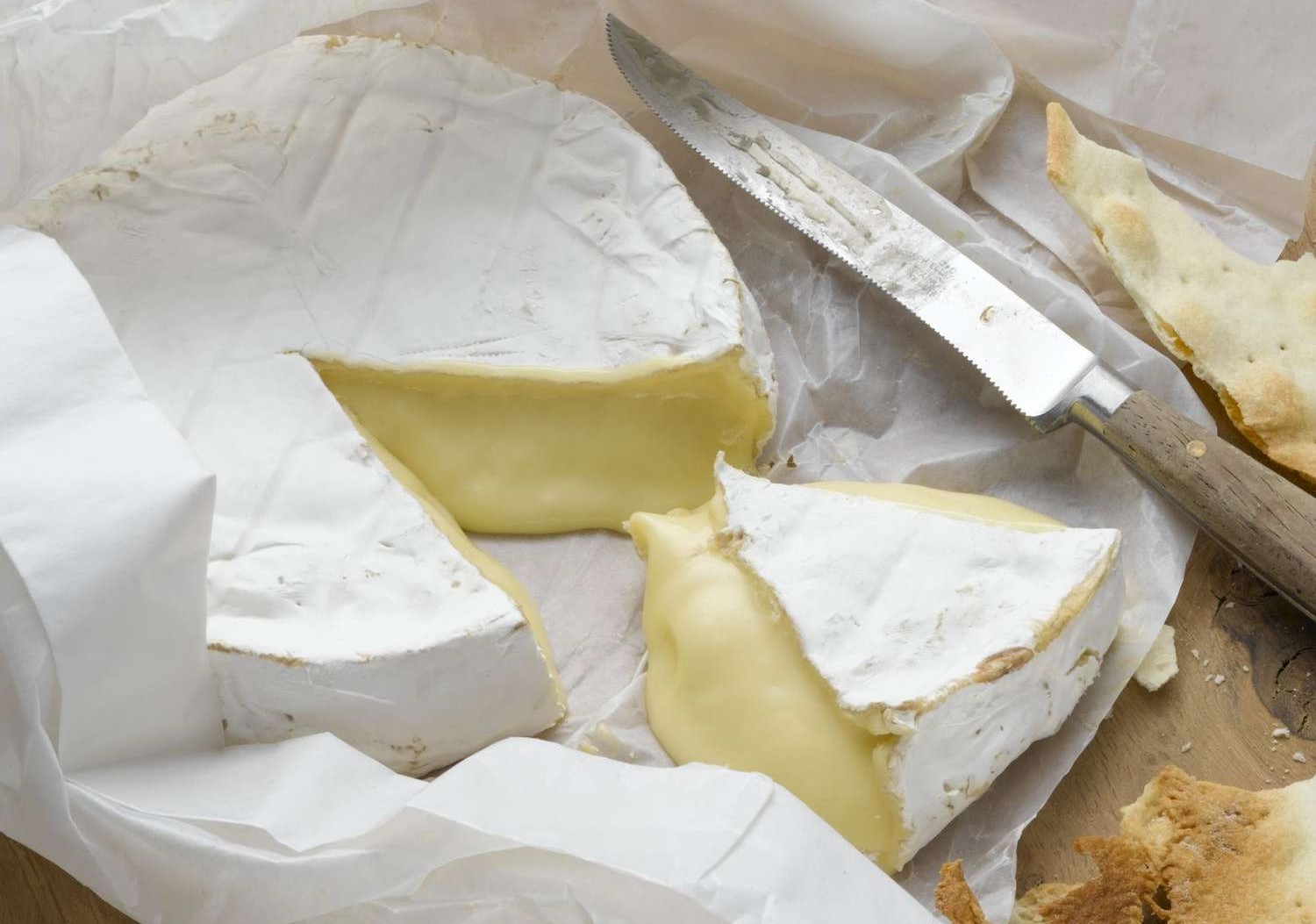

Articles
How To Store Brie Once Opened
Modified: January 8, 2024
Learn the best techniques for storing your opened brie cheese to maintain its freshness and flavor. Read our informative articles for helpful tips and guidance.
(Many of the links in this article redirect to a specific reviewed product. Your purchase of these products through affiliate links helps to generate commission for Storables.com, at no extra cost. Learn more)
Introduction
Welcome to our guide on how to store Brie cheese once it has been opened. Brie cheese is a popular and delicious soft cheese known for its creamy texture and rich flavor. Whether you have a leftover wedge from a party or simply want to enjoy it over time, knowing how to properly store Brie is essential to maintain its quality and prevent spoilage.
Understanding the best storage methods for Brie cheese is vital because, like all dairy products, it is perishable. Improper storage can lead to flavor deterioration, texture changes, and even the growth of harmful bacteria. By following the guidelines outlined in this article, you can extend the shelf life of your Brie and ensure that it remains fresh and delicious for as long as possible.
In the upcoming sections, we will delve into the nuances of storing Brie cheese, including the importance of proper storage, tips for storing both in the refrigerator and at room temperature, and how to avoid cross-contamination. Additionally, we will discuss the signs of spoilage, so you can identify when it’s time to bid farewell to your beloved Brie.
Key Takeaways:
- Properly storing Brie cheese is essential to maintain its creamy texture and rich flavor, prevent spoilage, and extend its shelf life, ensuring a delightful culinary experience.
- By following storage guidelines, using appropriate wrapping materials, and being vigilant for signs of spoilage, you can enjoy Brie cheese at its peak freshness and flavor, whether on its own or in delicious recipes.
Read more: How To Store Vodka Once Opened
Understanding Brie Cheese
Before we dive into the specifics of storing Brie cheese, let’s take a moment to understand this delectable cheese variety. Brie is a soft-ripened cheese that originated in France and is renowned for its characteristic bloomy rind and creamy interior. Made from cow’s milk, Brie has a slightly salty and tangy flavor with hints of mushroom and earthiness.
The cheese gets its distinct flavor and texture from the aging process. Traditionally, Brie is ripened for several weeks or even months, allowing the flavors to develop and the cheese to become soft and gooey. This aging process also contributes to the formation of the velvety bloomy rind, which is a thin layer of mold that is safe to consume and adds complexity to the taste.
As a soft cheese, Brie has a higher moisture content compared to harder varieties. This means it is more susceptible to spoiling if not stored properly. The texture of Brie is delicate and creamy, and it should have a subtle but distinct aroma that is pleasant and enticing.
When purchasing Brie cheese, it is essential to choose a high-quality piece. Look for cheese that is plump, slightly firm to the touch, and free from any signs of mold or discoloration. The cheese should have a fresh aroma and a uniform creamy color throughout.
Now that you have a basic understanding of Brie cheese, let’s move on to the next section, where we will explore why proper storage is crucial for preserving the quality of this delightful cheese.
The Importance of Proper Storage
Proper storage is crucial when it comes to preserving the flavor, texture, and safety of Brie cheese. The following are some key reasons why you should pay attention to how you store your Brie:
- Maintains flavor and texture: Brie cheese is known for its creamy and delicate texture and distinct flavor. By properly storing Brie, you can help maintain its desirable characteristics, ensuring that each bite is as delightful as the first. Improper storage can lead to texture changes, such as becoming overly soft or grainy, and can result in flavor deterioration.
- Prevents spoilage: Like all dairy products, Brie cheese is perishable and can spoil if not stored correctly. If exposed to air, moisture, or high temperatures, the cheese can develop off-flavors, mold growth, and even harmful bacteria. Proper storage practices help minimize the risk of spoilage, ensuring that your Brie remains safe to consume.
- Extends shelf life: With proper storage, you can extend the shelf life of your Brie cheese, allowing you to enjoy it for a more extended period. By taking care to store it the right way, you can reduce waste and maximize your enjoyment of this delectable cheese.
- Promotes food safety: Brie cheese, like any unpasteurized or soft cheese, carries a small risk of harboring harmful bacteria, such as Listeria monocytogenes. By storing Brie properly, you can minimize the chances of bacterial growth and ensure that the cheese remains safe for consumption.
Now that you understand the importance of proper storage for Brie cheese, let’s move on to the next section to learn some practical tips on how to store Brie both in the refrigerator and at room temperature.
Tips for Storing Brie Cheese
To ensure the longevity and quality of your Brie cheese, follow these tips for storing it properly:
- Keep it chilled: Brie cheese should be stored in a cold environment to slow down the growth of bacteria and maintain its freshness. The ideal temperature for storing Brie is between 35°F (1.5°C) and 40°F (4.5°C).
- Use a cheese paper or wax paper: When storing Brie in the refrigerator, protect it from drying out by wrapping it in cheese paper or wax paper. These materials allow the cheese to breathe while still providing a barrier against moisture loss. Avoid using plastic wrap, as it can cause condensation and affect the texture of the cheese.
- Place it in a container: If you don’t have cheese paper or wax paper, you can store Brie in an airtight container. This will help maintain its moisture and prevent it from absorbing any odors from other foods in the refrigerator.
- Keep it separate: When storing Brie in the refrigerator, make sure to keep it separate from strong-smelling foods, as it can absorb odors easily. Store it in a designated compartment or use a sealed container to avoid cross-contamination.
- Allow it to breathe: If you’ve already cut into the Brie, make sure to let it breathe by partially covering it with wax paper or cheese paper. This will prevent the cheese from drying out while still protecting it from external factors.
- Avoid freezing: It’s generally not recommended to freeze Brie cheese, as the freezing process can alter its texture and affect the flavor. Freezing may cause the cheese to become crumbly or lose its creamy consistency.
- Monitor for mold: As Brie cheese ages, it is normal for mold to develop on the rind. However, if you notice excessive mold growth or off-putting colors, textures, or odors, it may be an indication of spoilage. In such cases, it’s best to discard the cheese.
By following these tips, you can ensure that your Brie cheese stays fresh and delicious for longer periods, both in the refrigerator and at room temperature. In the next sections, we will further explore the storage methods specific to refrigeration and room temperature.
<
>Storing Brie in the Refrigerator<
>
<
>When it comes to refrigerating Brie cheese, following these steps will help maintain its freshness and quality:<
>
<
- >
- ><>Wrap it properly:<> Before placing Brie in the refrigerator, ensure it is well-wrapped. Use cheese paper, wax paper, or an airtight container to keep the cheese protected from moisture and odors in the fridge.<
- >
<
- ><>Choose the right spot:<> Locate a dedicated spot in your refrigerator for storing Brie. The cheese should be placed on a shelf away from strong-smelling foods like onions or garlic, as it can absorb these odors.<
- >
<
- ><>Avoid the door:<> The door of the refrigerator is the warmest area, experiencing temperature fluctuations when opened. To maintain a consistent and cool temperature, store Brie closer to the back of the fridge, in a more stable environment.<
- >
<
- ><>Check for moisture:<> It’s important to monitor the moisture level of your Brie while stored in the refrigerator. If you notice excessive moisture or condensation, pat it dry gently with a paper towel to prevent the cheese from becoming too wet and losing its quality.<
- >
<
- ><>Rotate the cheese:<> If you have multiple pieces of Brie cheese stored in the refrigerator, rotate them occasionally. This helps to ensure equal exposure to the cold temperature and prevents any one piece from becoming too dry or moldy.<
- >
<- >
- Use cheese paper or wax paper: Wrap the Brie in cheese paper or wax paper, ensuring that the entire cheese is covered. These materials are breathable and help maintain the cheese’s ideal moisture levels without causing it to dry out.
- Avoid plastic wrap: It’s best to avoid using plastic wrap when storing Brie cheese for an extended period. Plastic can create a moist environment and may cause the cheese to become slimy or develop off-flavors. It also restricts airflow, which can negatively impact the cheese’s texture and taste.
- Secure the wrapping: Use tape or twist ties to secure the cheese paper or wax paper around the Brie. This will help keep the wrapping intact and prevent air exposure.
- Label and date: To keep track of the Brie’s age and ensure you consume it within a reasonable timeframe, label the wrapping with the date you opened it. This way, you’ll know when it’s time to enjoy the cheese before it starts to decline in quality.
- Wrap in plastic wrap for short-term storage: If you only plan to store the Brie for a day or two, you can wrap it loosely in plastic wrap. This method allows for easy access while providing a short-term protective barrier.
- Consider the room temperature: Make sure the room where you plan to store the Brie is not excessively warm. Ideally, the temperature should be below 70°F (21°C) to prevent the cheese from spoiling.
- Keep it away from heat sources: Avoid placing Brie near direct sunlight or heat sources like stoves or ovens. Excessive heat can cause the cheese to melt, resulting in a messy and unappetizing texture.
- Utilize a cheese dome or cover: To protect the Brie from dust and external contaminants, you can use a cheese dome or a cover specifically designed for storing cheese. These covers allow the cheese to breathe while ensuring it remains protected.
- Monitor the cheese: Keep an eye on the Brie while it’s stored at room temperature. If you notice any signs of mold growth, odd odors, or changes in texture, it’s best to discard the cheese to prevent the risk of foodborne illnesses.
- Consume within a few hours: It’s important to remember that Brie cheese is a perishable food item, and leaving it unrefrigerated for too long can increase the risk of spoilage. If you don’t plan on consuming the cheese within a few hours, it’s best to refrigerate it to ensure its safety and quality.
- Separate strong-smelling foods: Brie cheese is known for its delicate flavor, and it can easily absorb odors from other foods. To prevent this, store Brie away from strong-smelling ingredients like onions, garlic, or pungent cheeses. It’s best to keep the cheese in a sealed container or dedicated compartment in the refrigerator.
- Use individual wrapping: If you have multiple pieces of Brie cheese, it’s essential to wrap each piece separately. This prevents any flavors or bacteria from transferring between the different pieces.
- Clean storage containers: If you store Brie in a container, make sure to clean it thoroughly before each use. Residual flavors or bacteria can contaminate the new batch of cheese when stored in the same container.
- Wash your hands: Before handling Brie cheese, wash your hands thoroughly with soap and water to remove any potential contaminants. This will help maintain the integrity of the cheese and reduce the risk of bacterial contamination.
- Use separate utensils: When serving Brie cheese, use separate utensils for cutting or spreading to avoid cross-contamination. This prevents any bacteria or flavors from transferring from other foods to the cheese.
- Unpleasant odor: Brie cheese has a distinct aroma, but if you notice a strong, sour, or off-putting smell, it may indicate that the cheese has spoiled. Trust your sense of smell and avoid consuming Brie with foul odors.
- Mold growth: While some molds are normal and even desirable for Brie cheese, excessive or unusual mold growth can be a sign of spoilage. If you notice fuzzy, discolored, or slimy mold on the cheese, it’s best to discard it.
- Texture changes: Brie cheese should have a creamy and soft texture. If you find that the cheese has become overly dry, hard, or grainy, it may have gone bad. Changes in texture can indicate spoilage or improper storage.
- Unusual taste: If the Brie cheese tastes significantly different from its normal flavor or if it has a bitter or unpleasant taste, it’s a good indication that the cheese is no longer fresh and should be avoided.
- Visible discoloration: While some discoloration on the rind is normal for aged Brie cheese, any unusual or widespread discoloration on the interior or exterior of the cheese may suggest spoilage. Look for changes in color, such as green, blue, or black spots, and avoid consuming the cheese in such cases.
- Excessive liquid: Brie cheese typically has a soft and creamy consistency, but if you notice an excessive amount of liquid oozing out from the cheese, it could indicate spoilage. The presence of too much liquid can be a sign of bacterial growth or an imbalance in the cheese’s moisture content.
<
>By following these guidelines, you can maintain the freshness and quality of Brie cheese in the refrigerator for an extended time. However, if you prefer to enjoy your Brie cheese at room temperature, continue reading to learn the proper methods for storing it outside of the fridge.<
>
Wrapping Brie for Storage
Properly wrapping Brie cheese is essential to ensure its longevity and prevent it from spoiling. Here are some guidelines to follow when wrapping Brie for storage:
It’s crucial to remember that Brie is a delicate cheese, and excessive handling can affect its texture and flavor. When wrapping Brie, handle it gently to avoid squishing or distorting the cheese.
By using the appropriate wrapping materials and techniques, you can preserve the quality of Brie cheese and enjoy it at its best for an extended period.
In the following section, we will explore how to store Brie cheese at room temperature for a slightly different experience.
Store opened Brie in the refrigerator in its original packaging or wrap it in wax paper or parchment paper, then place it in an airtight container to prevent it from absorbing other flavors. Use it within 1-2 weeks for best quality.
Read more: How To Store Dates Once Opened
Storing Brie at Room Temperature
In general, it is safe to store Brie cheese at room temperature for a short period, typically up to a few hours. However, there are a few guidelines to follow to ensure the cheese remains safe and enjoyable:
Storing Brie at room temperature can enhance its flavors and allow it to reach a softer and creamier consistency. However, it’s essential to exercise caution and adhere to proper storage practices to avoid any health risks.
Now that we’ve covered storing Brie cheese both in the refrigerator and at room temperature, let’s explore the importance of avoiding cross-contamination to maintain the integrity of this delightful cheese.
Avoiding Cross-Contamination
When it comes to storing Brie cheese, it’s vital to prevent cross-contamination to maintain its quality and safety. Cross-contamination occurs when bacteria or flavors from other foods come into contact with the cheese, affecting its taste and potentially causing spoilage. Here are some tips to avoid cross-contamination:
By following these practices, you can ensure that your Brie cheese remains pure and unaffected by other foods, preserving its unique flavor and texture.
Now that you understand the importance of preventing cross-contamination, let’s move on to the next section, where we will discuss the signs of spoilage to help you identify when your Brie cheese has gone bad.
Signs of Spoilage
It’s essential to be able to identify the signs of spoilage in Brie cheese to ensure you consume it when it’s at its best and avoid any potential health risks. Here are some common signs of spoilage to look out for:
To ensure your safety and enjoyment, always trust your senses when it comes to determining the quality of Brie cheese. If any of the aforementioned signs are present, it’s best to err on the side of caution and discard the cheese.
With these tips in mind, you can confidently store your Brie cheese, appreciate its flavors and textures, and know when it’s time to bid farewell to a beloved piece.
Now that you’re equipped with the knowledge of storing and identifying signs of spoilage in Brie cheese, you can fully enjoy the delights of this delectable cheese without any concerns.
Conclusion
Brie cheese is a beloved and decadent treat known for its creamy texture and rich flavors. Proper storage is essential to maintain its quality and prevent spoilage. By following the guidelines in this article, you can ensure that your Brie cheese remains fresh, delicious, and safe to consume.
Understanding the characteristics of Brie cheese, such as its delicate texture and aging process, is fundamental to appreciating its unique qualities. Proper storage techniques help preserve the flavors, extend the shelf life, and maintain the integrity of this delectable cheese.
Whether storing Brie in the refrigerator or at room temperature, it’s crucial to wrap it correctly to protect it from moisture and avoid cross-contamination with other foods. Using cheese paper, wax paper, or airtight containers can help maintain the cheese’s moisture balance and prevent unwanted flavors or bacteria from affecting its taste.
When it comes to storing Brie, it’s important to be vigilant in identifying signs of spoilage, such as unusual odors, mold growth, texture changes, or off-tasting flavors. Trust your senses, and if in doubt, it’s always better to err on the side of caution and discard any cheese that shows signs of spoilage.
By following these storage guidelines and being mindful of the signs of spoilage, you can enjoy your Brie cheese at its peak freshness and flavor. Whether you savor it on its own, spread it on bread, or incorporate it into delicious recipes, properly stored Brie cheese will always provide a delightful culinary experience.
Now that you have a comprehensive understanding of how to store Brie cheese once opened, it’s time to put this knowledge into practice. So go ahead, indulge in the delectable world of Brie cheese, and make the most out of every creamy and flavorful bite.
Frequently Asked Questions about How To Store Brie Once Opened
Can I store opened brie in the fridge?Yes, you can store opened brie in the fridge to keep it fresh for a longer period of time. Proper storage is essential to maintain its flavor and texture.What is the best way to store opened brie?The best way to store opened brie is to wrap it tightly in wax paper or parchment paper, and then place it in an airtight container or resealable plastic bag. This will help prevent it from drying out and absorbing other odors in the fridge.How long can I store opened brie in the fridge?Opened brie can be stored in the fridge for up to 1-2 weeks. It’s important to check for any signs of spoilage, such as mold or an off smell, before consuming it.Can I freeze opened brie?While it is possible to freeze opened brie, it may alter the texture and flavor once thawed. If you do choose to freeze it, wrap it tightly in plastic wrap and aluminum foil to prevent freezer burn, and consume it within 1-2 months for the best quality.What are some tips for storing opened brie to maintain its quality?To maintain the quality of opened brie, it’s important to keep it away from strong-smelling foods in the fridge, such as onions and garlic. Additionally, make sure to remove any excess air from the packaging to help preserve its flavor and texture. - >
<
Was this page helpful?
At Storables.com, we guarantee accurate and reliable information. Our content, validated by Expert Board Contributors, is crafted following stringent Editorial Policies. We're committed to providing you with well-researched, expert-backed insights for all your informational needs.





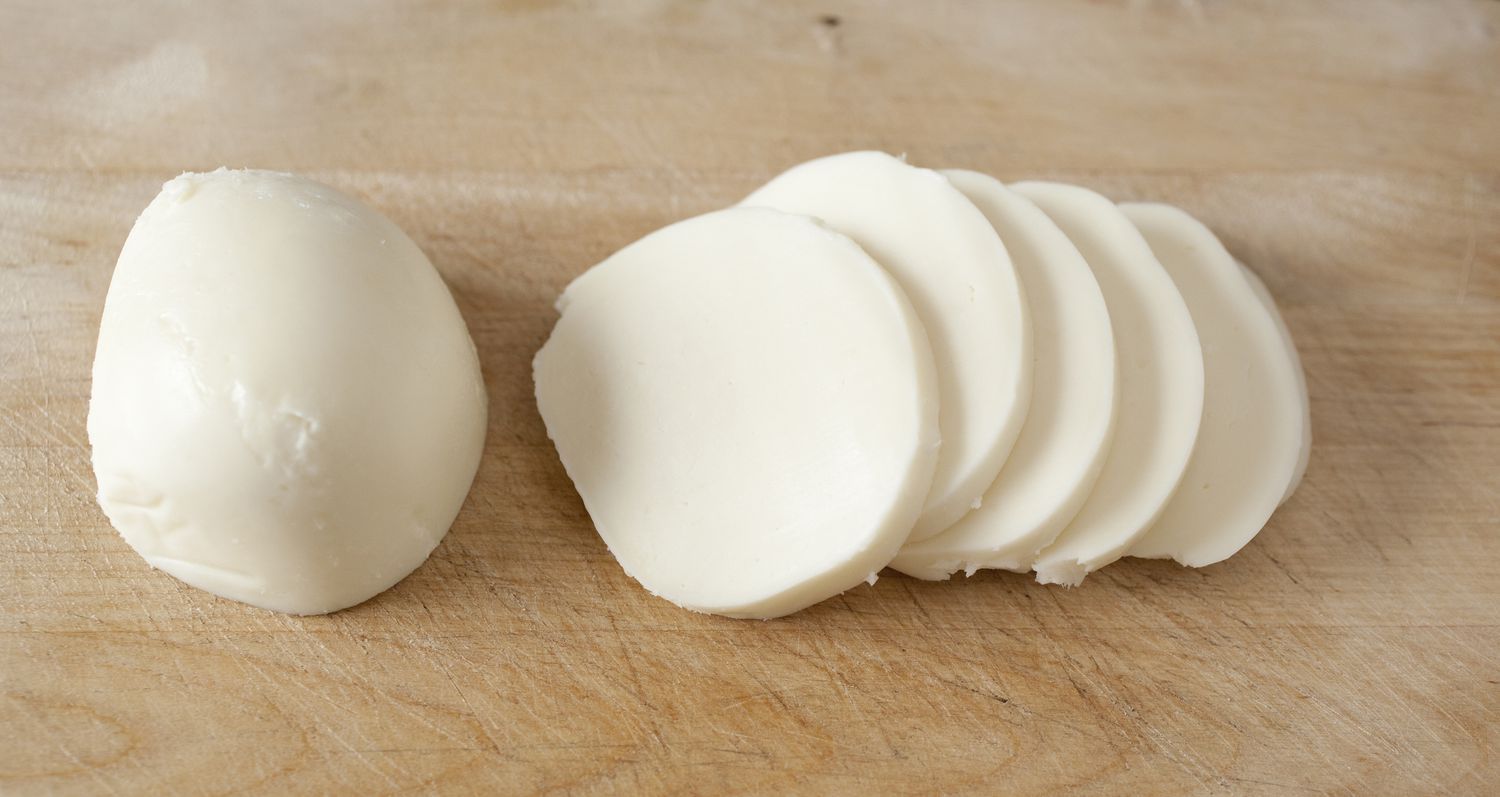
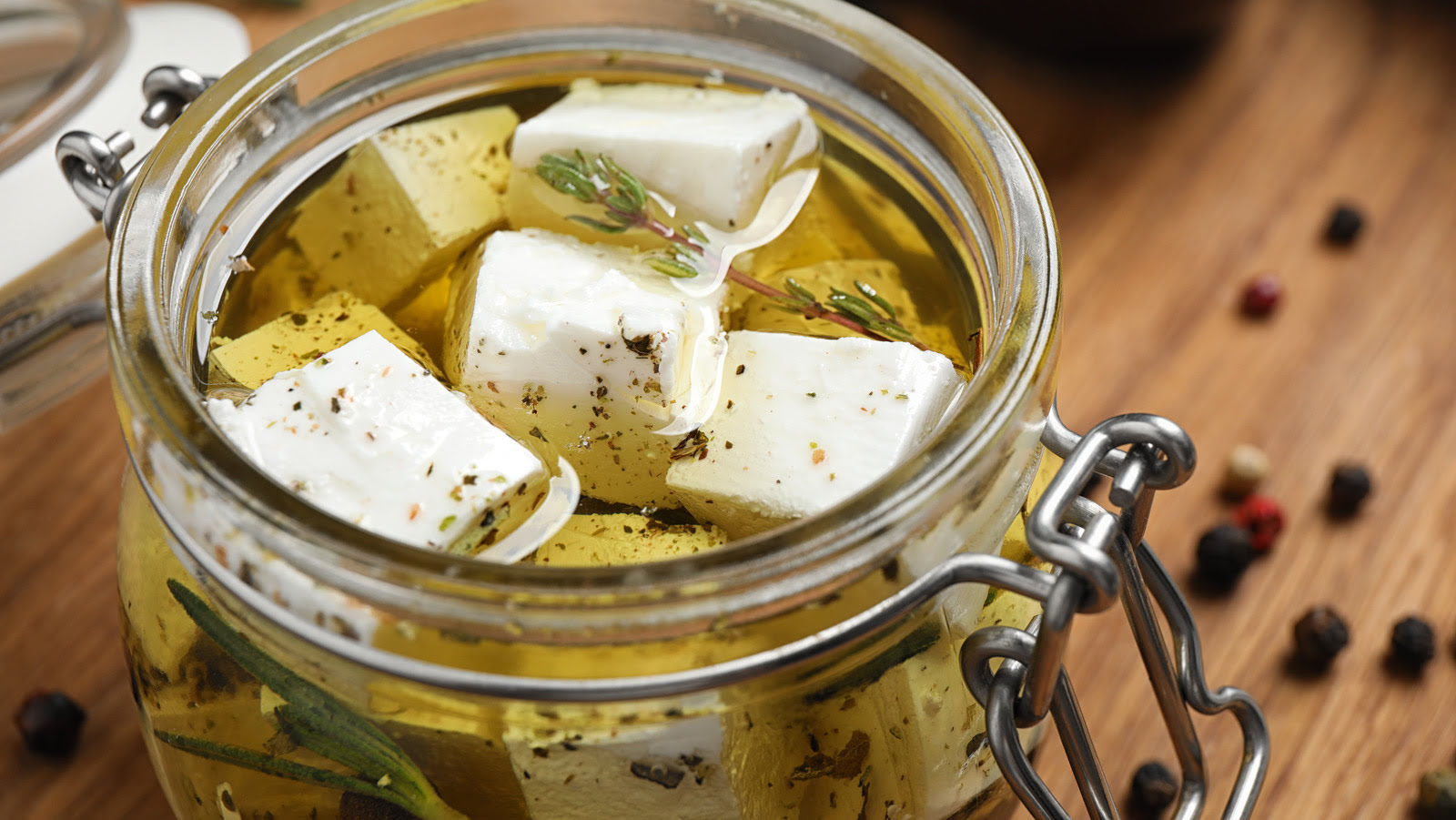
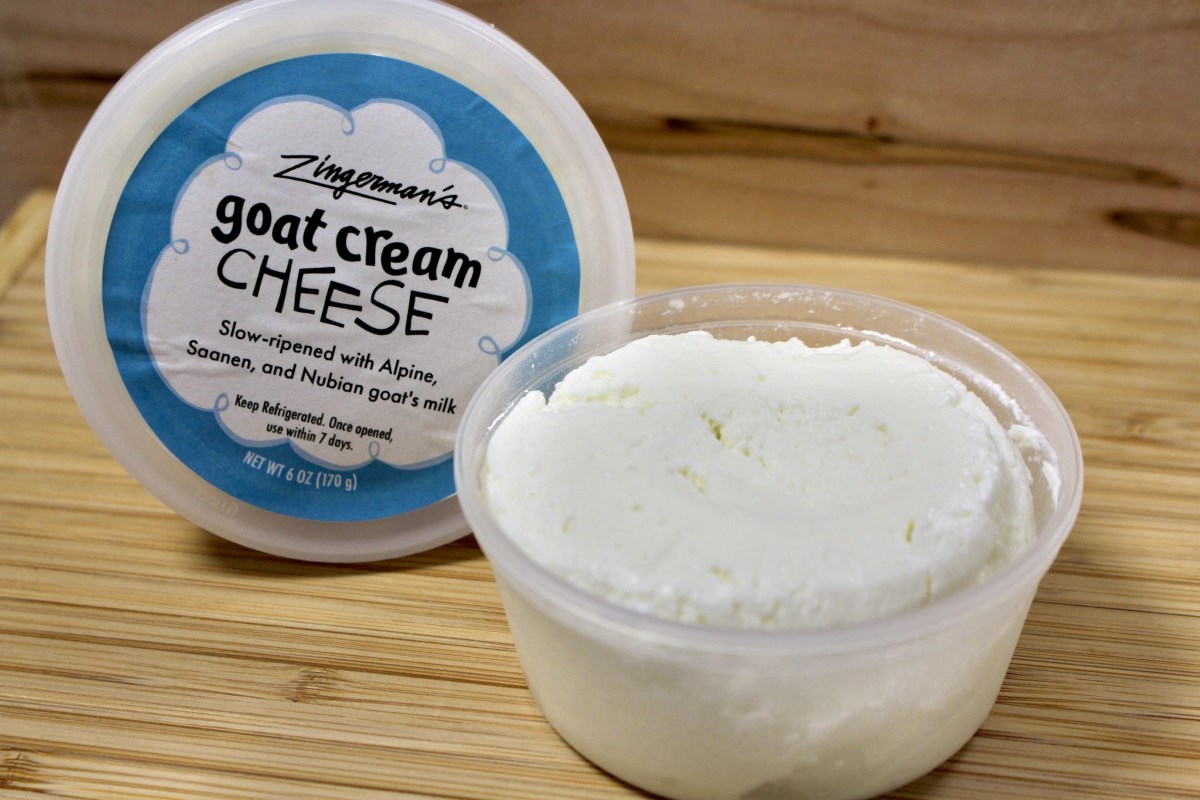

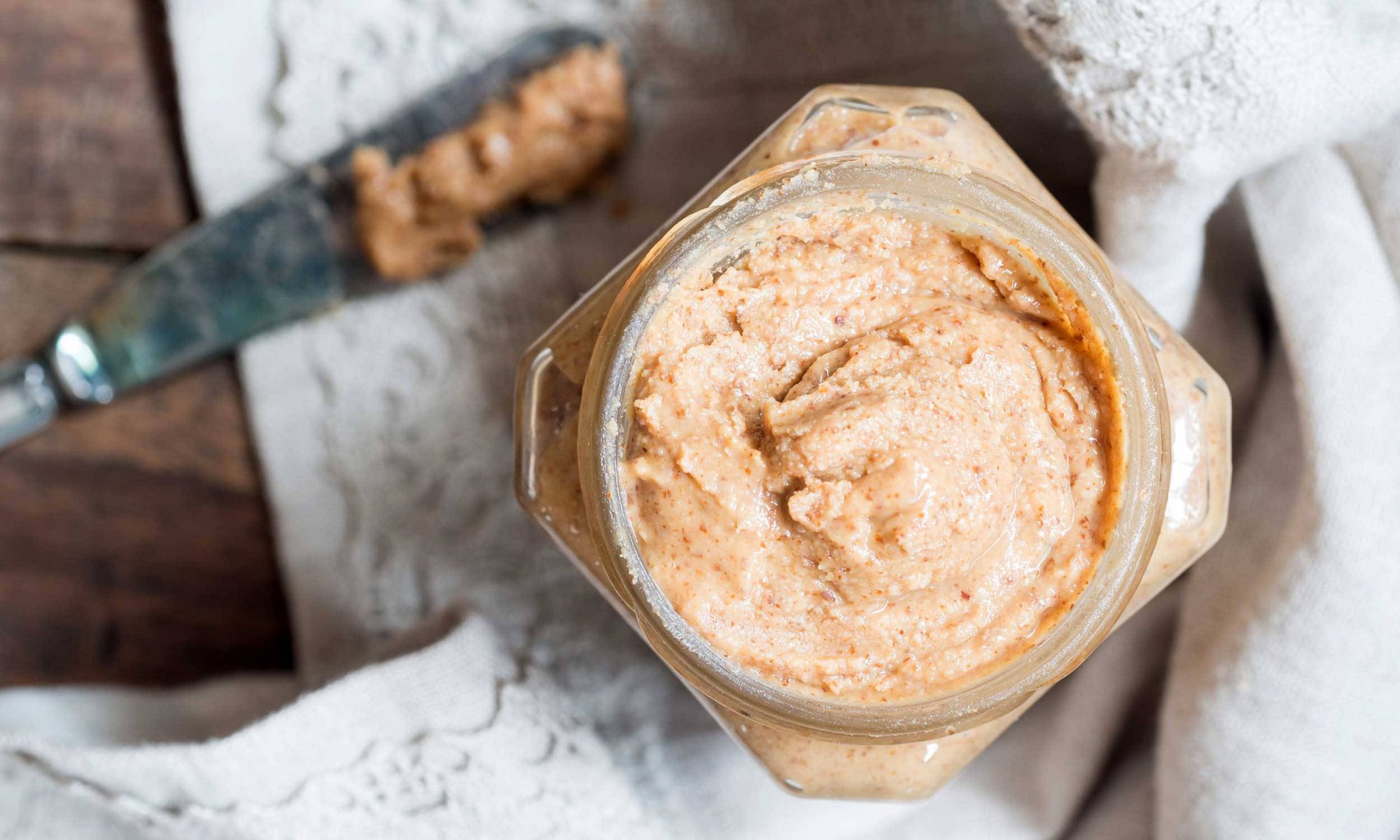


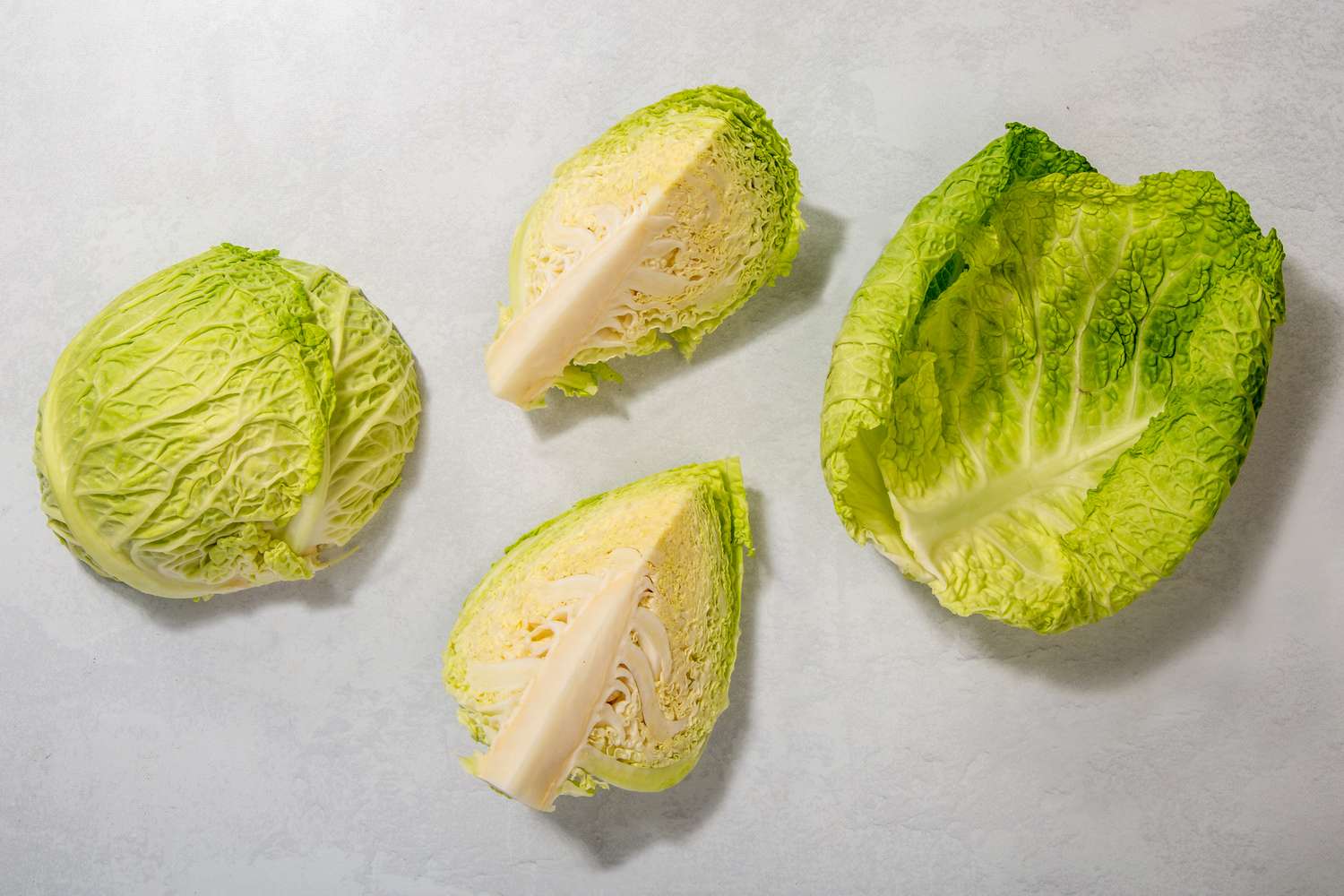


0 thoughts on “How To Store Brie Once Opened”